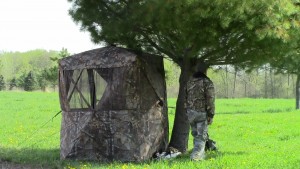By Glen Wunderlich
As American settlers cleared forests along their westward routes, they found wild turkeys in abundant numbers. However, removing the ground-dwelling birds’ natural habitat for shelter and warmth, and taking turkeys for food year-round, colonists left only birds that were inaccessible, and just about wiped them out.
In an effort to relocate turkeys, early archaic trapping methods were less than effective. However, in the early 1950s large cannon nets were employed successfully until even more modern rocket-propelled nets were developed in the 1960s. As good as this method was, some people thought it would be even better to pen-raise turkeys and turn them loose in the wild. This expensive failed experiment set back the restoration project some 20 years, because pen-raised birds couldn’t fend for themselves in the wild.
The transplant process carried on, and with the support of private interests and governmental agencies, the turkey has become a real success story across the United States. Michigan’s wild turkey hunters took only 50 birds in the year 1969. My, how times have changed. For the past 16 years, Michigan turkey hunters have bagged close to 40,000 turkeys annually with the totals peaking in year 2008.
Today, all states but Alaska have huntable numbers with millions of birds reestablished and they now inhabit more territory than any other game bird in North America.
Hunting them today has never been easier. Not only are there plenty of birds to go around, but hunting tactics are no longer such a mystery with the advent of hunting shows and online how-to videos and DVDs. In addition, dedicated turkey guns and high-tech ammunition have evolved, as well.
But, the single-most productive advancement has to be the proliferation of portable blinds.

Browning Powerhouse Blind
To introduce a new hunter – especially a youngster – to hunting, incorporating the use of a pop-up shelter cannot be beat. For whatever reason, turkeys pay no attention to a portable shelter – even one that’s been set up minutes before a bird approaches.
By purchasing a blind large enough for two people and tall enough to stand up, fidgety youngsters can fidget about and a hunter can position himself for an opportunity with minimal chance for being detected by a wily gobbler. And, if the weather turns nasty, those inside the shelter can laugh at Mother Nature’s attempt to spoil an adventure.
Yet another advantage of a portable blind is that hunters can record hunts with a video camera that can be kept safe from the elements.
Hunting turkeys doesn’t take a lot of expensive, single-purpose gear, either. Decoys can be elaborate – and costly – but fancy is not necessary. I’ve used the same inexpensive rubber hen decoy for years; if, and when, a gobbler figures it out, he’s already enroute to my dinner table.






